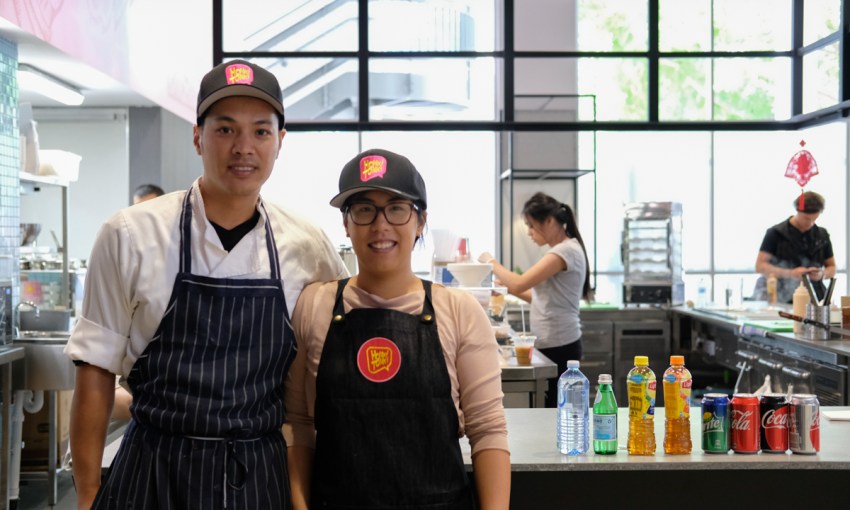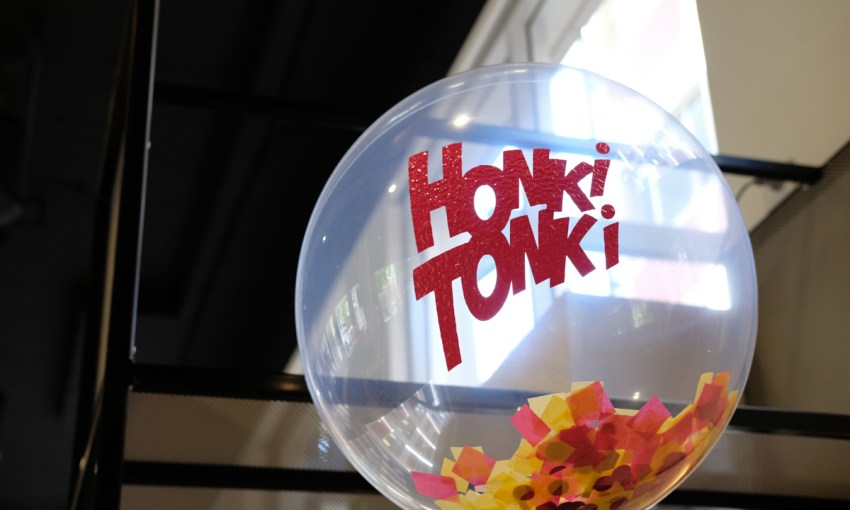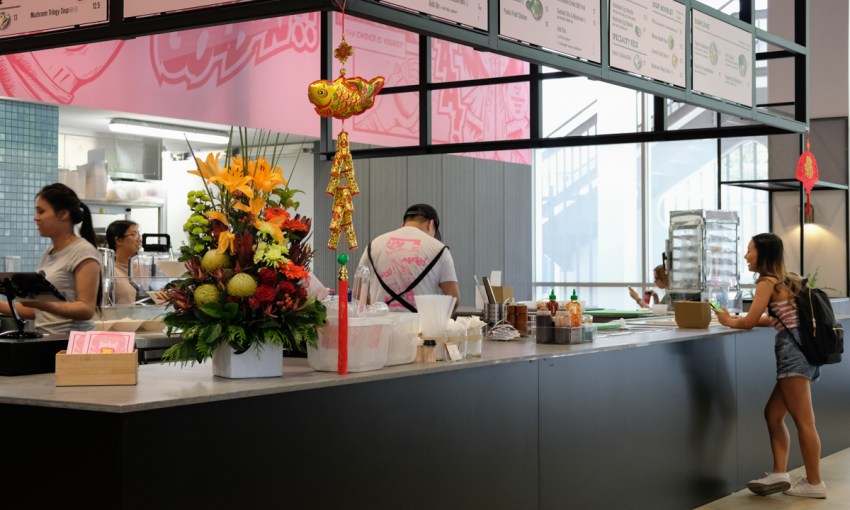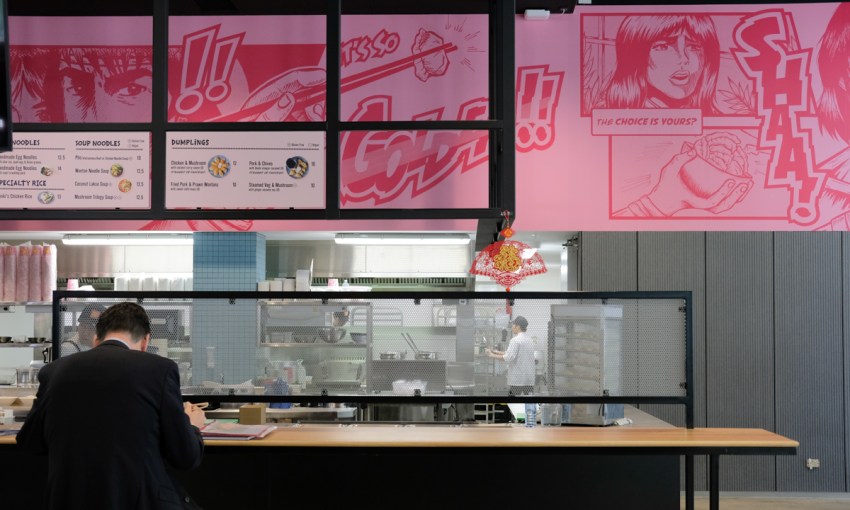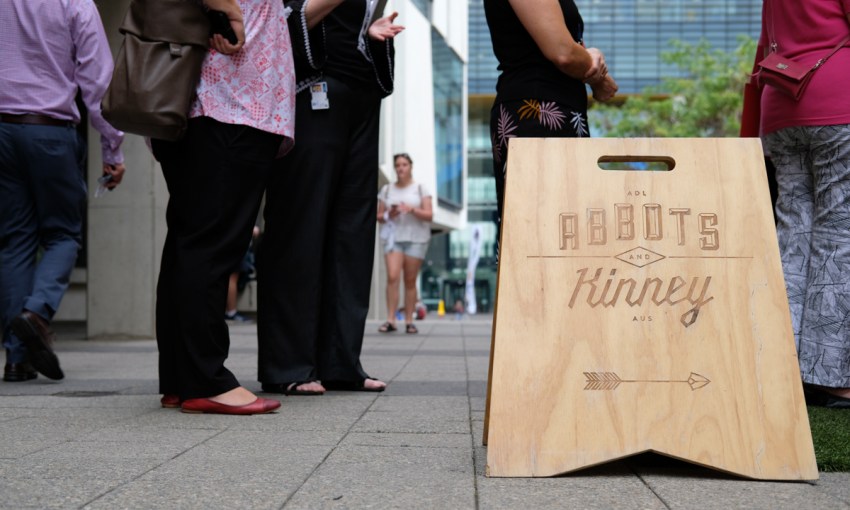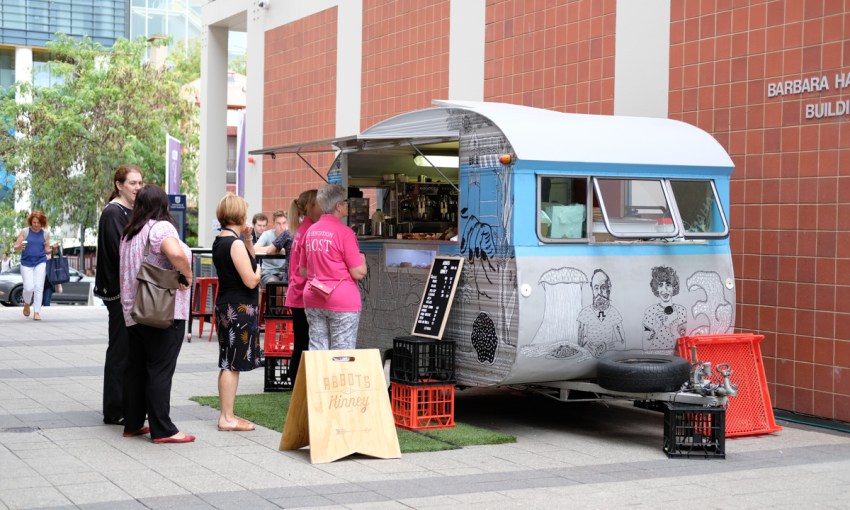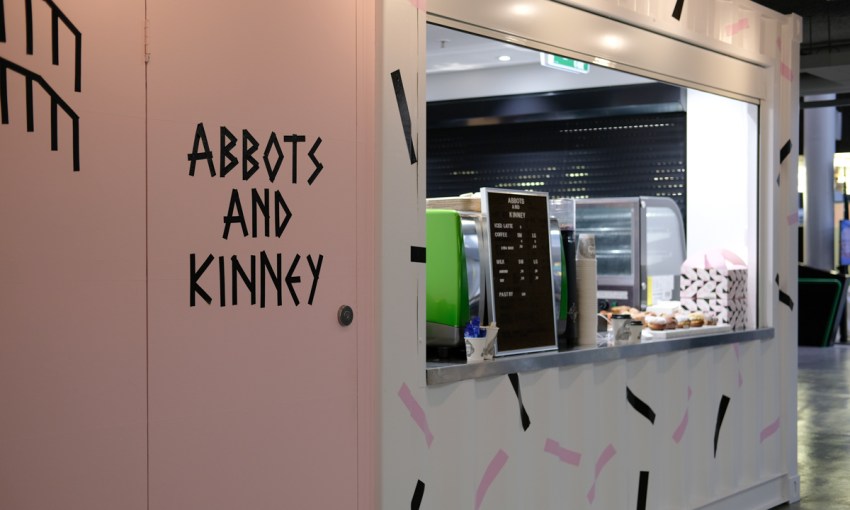There’s a good food revolution happening on South Australian university campuses, and it’s benefitting both students and local small businesses.
Good food on campus
In February 2015, CityMag visited Flinders University to witness the first hints of a changing attitude toward campus life in South Australian universities.
The uni had not long begun the process of redeveloping its Hub, which involved the demolition of the campus food hall. In the interim the uni brought food truck operators into a market-style laneway, where they existed as relief (for students and staff alike) from standard campus fare.
Gone would be the days of reheated lasagna, pre-made and packaged salad rolls, and buckets of soggy chips standing limply in a glass-fronted pie warmer.
The redevelopment was “a response to a lack of student experience on campuses,” Flinders University’s director of building and property, David Banks, explained at the time.
“One of the really important pieces of feedback we got was ‘We want better coffee, we want better food,’ so that was a really big motivation for us.”
The university’s doors opened to Adelaide small businesses, and a honeypot was made available to them for the first time – a dream situation of a captive market starved of quality food. Understandably, this was an attractive proposition for Rob Dean and Dan Mendelson of Burger Theory.
“When we were in the truck very early on, some of our better days were parking on North Terrace and getting uni students,” Dan says.
“We generally saw our clientele as being demographically in that 18 to 35 group, so we figured uni students were probably good for that.”
The duo set up a shipping container in the temporary laneway, and once the Flinders Hub was completed, they won a bricks and mortar contract to run the campus’ Tavern, as well as a posting in the University of Adelaide’s Hub and a short-lived pop-up in a Melbourne pub near RMIT.
The Burger Theory flag was one of the first planted in tertiary soil and signalled an impending colonisation of campus kitchens with well-known names from Adelaide’s hospitality scene – UniSA City West welcomed Honki Tonki and Abbots & Kinney onsite during orientation week; the University of Adelaide also brought Abbots & Kinney into their Hub, next to Burger Theory; and UniSA Magill enlisted Phat Buddha to fill out its offering.
“They’re after having a student experience that beats other unis, so that people are like ‘We want to go to Uni Adelaide, who has, yes, good academics and all of that, but has great food options,’ because student services is increasingly the focus,” Dan says.
“You’re in this country you’ve never been to before and you’re stuck in this campus a lot, studying really hard, and you want it to be a nice place to spend time, otherwise you’re not going to tell your friends from home that this was a great idea.
“They’re hardly going to say ‘My accounting degree’s going amazingly well,’ they’re going to talk about the fun things they’re doing on campus.”
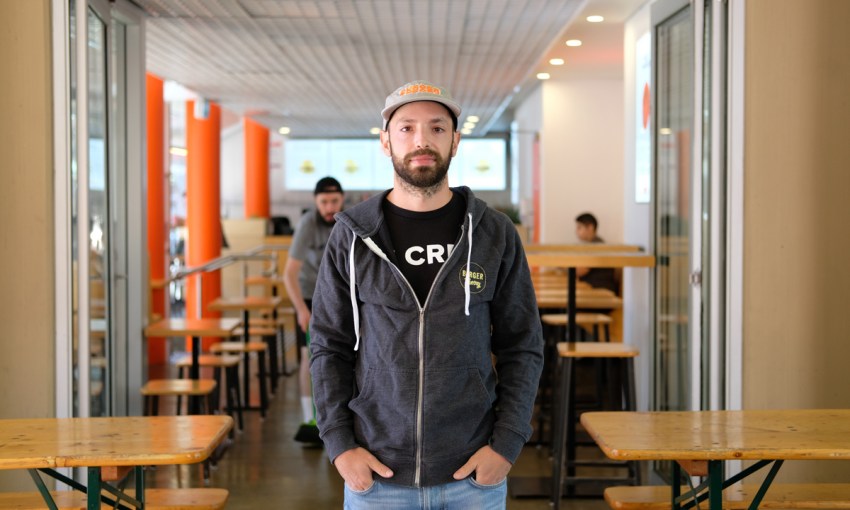
Dan Mendelson at Burger Theory Union Street.
It’s not just a captive and demographically appropriate market that benefits these burgeoning small businesses – opening in a university also offers an opportunity for growth, without taking on the risk of associated set up costs.
“We were looking for a place to expand and we were looking at suburban,” says Phuong Thai Nguyen, who owns Honki Tonki and Sit Lo with her husband, Vinh.
“There was a space out in Welland where it was about 400sqm, really big… full-blown kitchen, restaurant, sit down… but the fit out costs for that would be on us.
“This opportunity came up [and] it really weighed up between the uni is going to do this for you, this comes free, this doesn’t, so it was kind of a no-brainer.”
Both Sit Lo and the original Honki Tonki are physically small businesses, and so they share resources via a back alleyway, but the output expected from their limited space was beginning to push even the two shops’ boundaries. In opening up at the University of South Australia, Phuong has gained not only a third shopfront, but also a sizeable production kitchen that can feed all of her venues.
“Sit Lo at the moment is 55 metres, and our kitchen is too small for the capacity that we’ve got coming in,” Phuong says.
“This is going to be more so a production kitchen in the daytime, so all of our steam buns are going to be made here, and then we’re going to move them back and forth from the shops.”
The benefits for the shopkeepers in this agreement seem to abound, but there is a high barrier of entry imposed by the universities, with Honki Tonki’s application process dating back to July 2017.
“First round was a paper application, second round was a deeper analysis of the business, and then the third round was a full on presentation in front of 10 board members… and then you get shortlisted, they’ll ask you to come back, ask you a couple more questions,” Phuong recalls.
It is up to the businesses to prove they can make fresh and affordable food in a manner that takes into account both the on-the-run nature of the students and faculty’s schedule, as well the university’s environmental policy.
“We’re not supposed to be using any plastic, anything like that, because the uni are very strong on biodegradable packaging,” Phuong says.
“At the moment we already use that kind of stuff at our shop anyway, so I guess our visions were always going to be the same.”
For Abbots & Kinney founder, Jonny Pisanelli, being on campus is an opportunity to build a connection with students that he hopes will last.
“The uni students, you have to give them a bit more credit – they are essentially the future of our survival,” Jonny says.
“If we can build that rapport with them now, then they’re going to hopefully continually support us once they get out of uni and use us for their birthday cakes, or catering for their weddings when they get married – all of those things.”
This thought process has led Jonny to reconfigure his business so that, once his shopfront opens in UniSA City West, his pastries will be delivered raw and baked on-site, giving students a invaluable connection to hand-made pastries.
“I actually want to help recreate a culture of people that appreciate quality from a younger age, so when they do finish uni and they start earning better money, that they only know fresh baked pastries or well made coffee, or with Phuong from Honki Tonki, they know that food, they’re not just getting a stock standard ham and cheese croissant and an Iced Coffee,” he says.
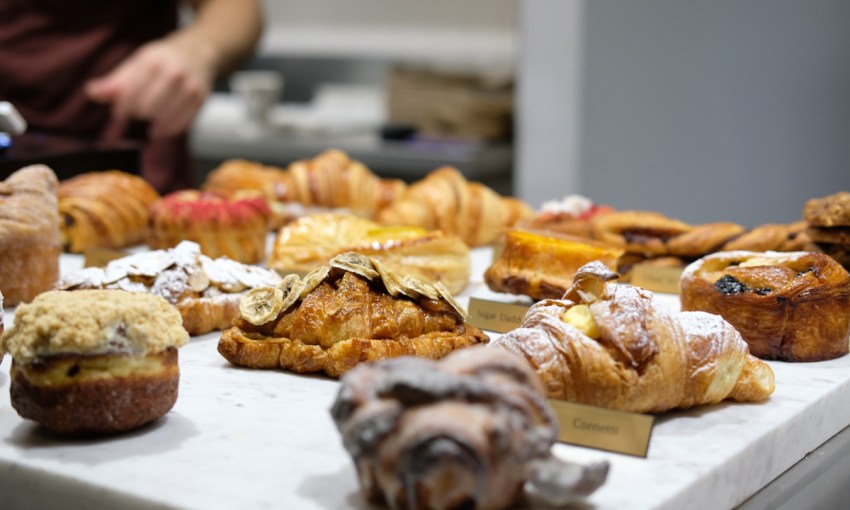
A tempting selection of Abbots & Kinney pastries at the University of Adelaide Hub.
Another shared vision of both the universities and the hospitality operators is one of improving the on-campus experience for students, making the university a unique landlord.
“Both Flinders and Adelaide… they’re not a private commercial landlord whose incentive is for the building to retain its value, and to collect your rent,” Dan says.
“The unis always want to work with you; as long as they see that you’re trying to do the right thing by the students, they’ll always be on your side.”
There is one quite sizable downside, however, to being based on a campus, and that is being left to the whims of the university calendar. Dan and Rob noticed this at Burger Theory, and due to their business model requiring a staffed kitchen and service counter to operate in tandem, the quiet months after exams had a huge effect on their bottom line.
“That’s part of the reason why we did an offshoot pizza brand,” Dan explains,
“That’s something we can make, put in a warmer, and then hand out straight away. So that sort of covered some of those later hours in the evening where we just weren’t seeing enough burger trade to justify having two or three people on.”
Even considering the looming quieter months between semesters, both Phuong and Jonny see the opportunity as one too great to pass up.
“I didn’t even think that these types of opportunities existed until the uni approached us. I hope it’s going to be a really long-term relationship that we have with them,” Phuong says.



